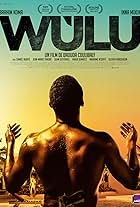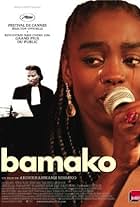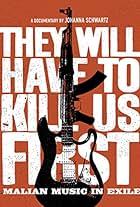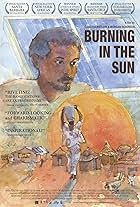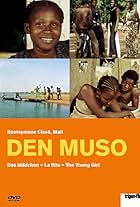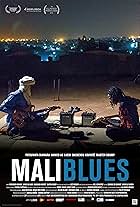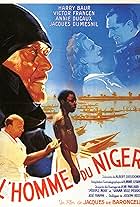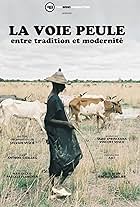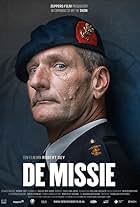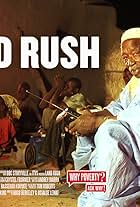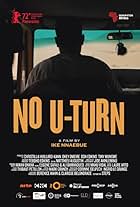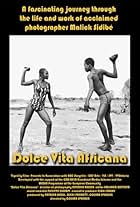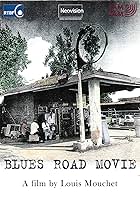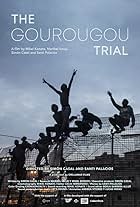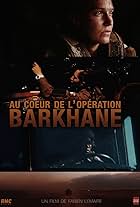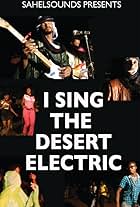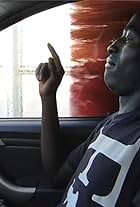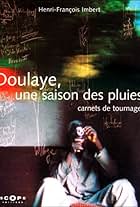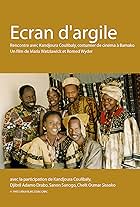Advanced search
- TITLES
- NAMES
- COLLABORATIONS
Search filters
Enter full date
to
or just enter yyyy, or yyyy-mm below
to
to
to
Exclude
Only includes titles with the selected topics
to
In minutes
to
1-39 of 39
- A young man begins trafficking cocaine and quickly becomes embroiled in the Malian drug ring.
- Bamako. Melé is a bar singer, her husband Chaka is out of work and the couple is on the verge of breaking up... In the courtyard of the house they share with other families, a trial court has been set up. African civil society spokesmen have taken proceedings against the World Bank and the IMF whom they blame for Africa's woes... Amidst the pleas and the testimonies, life goes on in the courtyard. Chaka does not seem to be concerned by this novel Africa's desire to fight for its rights...
- In 2012, jihadists took control of Northern Mali, imposing one of the harshest interpretations of sharia law in recent years and, crucially for Mali, banning music. Radio stations were destroyed, instruments were burned and overnight, Mali's musicians were forced into hiding or exile where many remain even now. Follow these musicians as they fight to keep music alive. Featuring rare footage of the jihadists, a glimpse at life in refugee camps and the perilous journeys home to war-ravaged cities, THEY WILL HAVE TO KILL US FIRST is a tale of courage in the face of conflict as Malian musicians refuse to give up the fight for their right to sing.
- 26-year-old charmer Daniel Dembele is equal parts West African and European, and looking to make his mark on the world. Seizing the moment at a crossroads in his life, Daniel decides to return to his homeland in Mali and start a local business building solar panels - the first of its kind in the sun drenched nation. Daniel's goal is to electrify the households of rural communities, 99% of which live without power. Founding a small business is something that is deeply embedded in American and European culture, a topic to which many can relate. But most have never seen this universal kind of effort take place in Africa, traditionally marked out by the media as the land of the starving, the war ravaged and the hopeless. Daniel's work shatters notions of the need for African dependence on outside aid and embraces the view that ultimately it is Africans who will develop Africa in their own way.
- A young mute woman is raped and becomes pregnant, with disastrous consequences within her family. The film also sketches the social/economic situation in urban Mali in the 1970s, particularly in relation to the treatment of women.
- Mali's Music defines the country's cultural identity. Radical Islamists are threatening the musicians. Together with the stars of Malian Global Pop - Fatoumata Diawara, Bassekou Kouyaté Master Soumy and Ahmed Ag Kaedi - we embark on a musical journey to Mali's agitated heart. Can their music reconcile the country?
- During a French construction project in the Sudan, a military doctor fights against leprosy and the natives seek protection against witch doctors.
- In W@=D@, Dimitri and Pieter have to do a last favor for their grandfather; Bompa Kado ('uncle Gift'). Bompa Kado went to country's far away and he brought some objects with him. Dimtri and Pieter have to return these objects to its country of origin and find out what exactly it's for. They go on adventure in four countries, 1 country each month; - In November they went to India with a statue of the god Ganesh. - In December the went to Mali with the Kanaga mask from Dogon. - In January they went to China with a dharma wheel - In February they went to Mexico and Guatemala with four corncobs. W@=D@ is a cross-media-project with four media; TV, Internet, magabook and theater.
- Intimist and symbolic portraits tell the current fate of Western Africa Peuls. In Mali, one of the poorest states of the world, these people whom the west dreamed so much about, are confronted with the terrible question of their future. In a Malian society in full transformation, can the traditions and the lifestyle of these semi-nomads shepherds continue to exist while confronted to the inevitable modernization of the country ?
- Joost de Wolf is a hardened and savvy soldier who has devoted his life to the army. In 2014 he is appointed Deputy Commander Operations of the UN mission in Mali. Upon his arrival, the Malinese army launches an attack on the insurgents and Joost finds himself in a mission unable to keep the factions apart. Hampered by the lack of political will from the UN and his own masters, he starts questioning official policies and unwittingly jeopardizes his career.
- 75 per cent of Mali's population are farmers, but rich land-hungry nations like China and Saudi Arabia are leasing Mali's land in order to turn large areas into agri-business farms. Tackling questions of food sovereignty, land ownership and development in Africa, the film asks who owns Africa.
- As a young man, Ike Nnaebue tried to flee to Europe. Twenty years later, he retraces the steps of his journey back then to find out what motivates people today to expose themselves to the dangers of a passage into an uncertain future.
- Young Moussa left his native village of Nanguila to succeed in Bamako. But in the capital, he only lived on the cheap and even ended up in a detention center. Now, he understands that his true place is with his family, in the village of his childhood, to which he will help to breathe new life now that the independence of Mali is here.
- The only film about the RAF in which a human being really comes over for me. It's a film you just have to have seen if you want to understand exactly why there always were anarchists - and why there always will be.
- Alima, one of the only two railway women in West Africa, travels across Mali on her locomotive.
- A documentary portrait of the African photographer Malick Sidibe, and a journey through Malian history inspired by his iconic images. Sidibe's snapshots from the late 50s through to the early 70s capture the carefree spirit of a youth asserting their freedom from colonialism in the early days of Malian independence - until a coup ushered in decades of austere military dictatorship. So this is a film not only about art, but also about a culture reflected through a camera lens, in a country that today is one of the poorest in the world.
- Blues Road Movie traces the long epic of African American music and takes us on a journey to mythical places: from the banks of the Niger to New Orleans, going up the Mississippi through Memphis, to the skyscrapers of Chicago.The film ends with an unique encounter between African and American bluesmen. It shows that culture can overcome the worst barriers.
- Two African migrants helped by two human rights lawyers take on the Spanish authorities, claiming their right to have rights before the European Court of Human Rights.
- Who said that the army was a man's business? Although women had to wait WWII to officially join the armed forces, and hiring quotas haven't been abolished until 1998, women are now increasingly joining the French army, and can now access to key positions long reserved for men. This is the case for Operation Barkhane, launched in 2014. Bringing together 5,100 soldiers and huge material resources, it is a real technical and strategic challenge, carried out in an area spanning Burkina Faso, Mali, Mauritania, Niger and Chad. The aim? To fight against Armed Terrorist Groups by cutting off their logistic flows and access to refuges in this mostly desert area, as vast as Europe. 7 fighter aircrafts, 22 helicopters, more than 500 armored vehicles, a dozen tactical and strategic transport aircrafts and the support of many countries: it is at the heart of this mission that we follow the daily life of four female soldiers. On the ground and in the air, they are working day and night against the terrorist threat. By their side, we share their missions, their hopes and their determination.
- This original documentary shot by Arthur Jafa brings a new look to the modern African city and enables a better understanding from the inside of how democracy takes root in Mali. Discover how politics in the city and in everyday life is lived in a changing society still inscribed within tradition as the men and women of Bamako tell their own stories.
- "I Sing the Desert Electric" is a collection of video shorts taken in four locations and representing four distinct and highly regional music scenes. From fuzzy electric guitars of Mauritania to raucous electro street parties of Bamako, the short survey is a window into contemporary performance in the Western Sahel.
- Encounter with Kandjoura Coulbaly, costume designer in Bamako (Mali).
